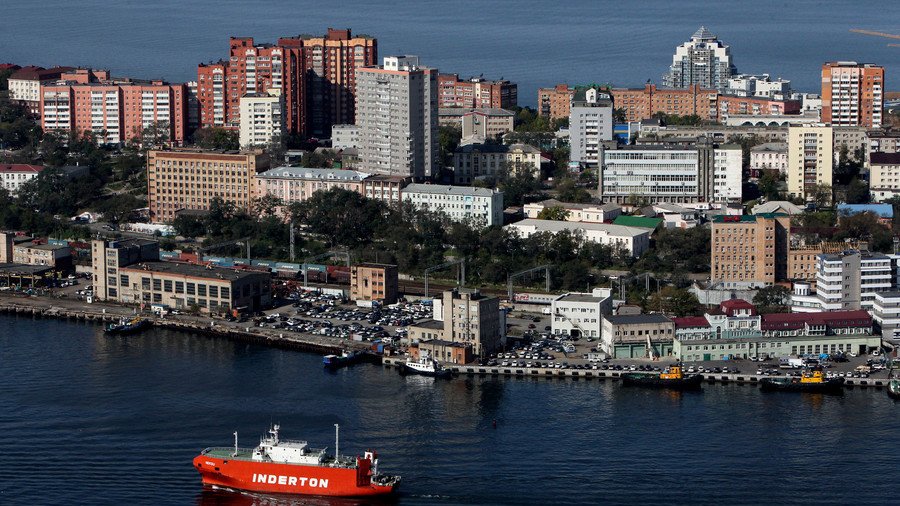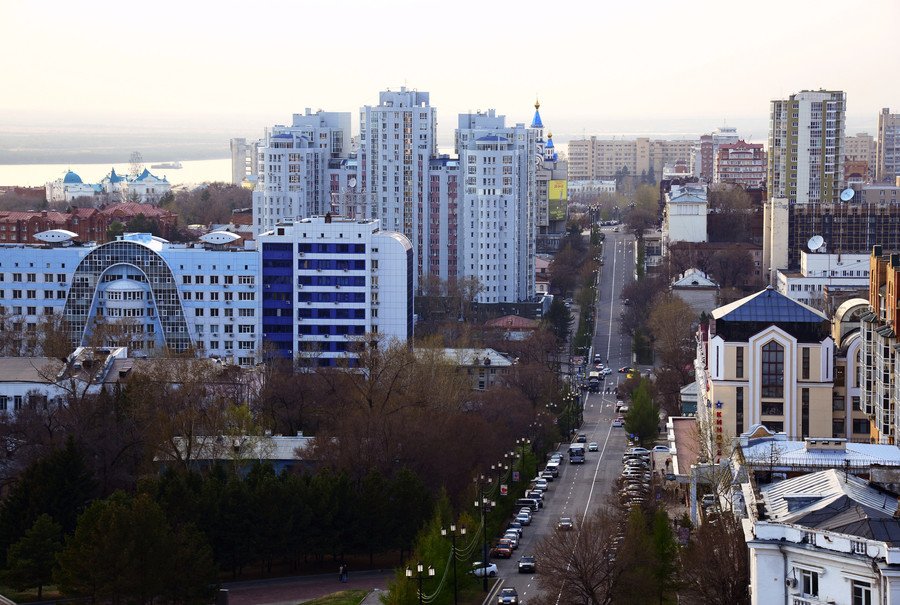Blip or trend? Regional elections suddenly become less predictable in Russia

Russia's Far East has given the Kremlin a bloody nose over the past two weekends. It's a reminder to Moscow that the regions can't be taken for granted and blowback can be expected over unpopular pension reforms.
In the end, it was a landslide. Nationalist opposition candidate Sergei Furgal of the Liberal Democratic Party of Russia (LDPR) defeated President Putin's man Vyacheslav Shport by a margin of almost 70 percent to just under 28 percent in the race to become governor of Khabarovsk. Meanwhile, contests in Vladimir, Khakassia and Primorye also delivered setbacks to the ruling party, United Russia.
But don't get too excited – or worried – just yet, depending on your political preferences. These were regional elections, fought mainly on local issues, involving personalities barely known in Moscow but well-known in their own backyards. Small town heroes, or villains, as it were.
Russia's governing United Russia party has shipped a huge defeat in the Far Eastern province of Khabarovsk. Its outgoing governor Vyacheslav Shport has lost 70%-30% against nationalist opposition candidate Sergei Furgal. https://t.co/2YktGvTE7e
— Bryan MacDonald (@27khv) September 23, 2018
That said, it's no surprise that United Russia's present troubles have kicked off in the Far East. A vast territory populated by the descendants of dreamers, patriots and forced exiles. And one of the greatest, and unheralded, ethnic melting pots in the world. There, a person can be part-Ukrainian, Jewish, Korean, Polish, Buryatian or Tatar (or even all of them at once, among others) and still feel as Russian as any Ivan Ivanov on the European frontier.
Pioneer passions
Far Easteners see themselves as a special breed. Nobody's forefathers came for the weather (winters often make St. Petersburg look like the tropics, by comparison) or the tigers or the tundra. Instead, they migrated for adventure and the promise of a better life. And there was also a patriotic warm glow from the feeling they were securing the resource-laden lands for Russia.
And they were the lucky ones who had a choice. Others were forceably exiled by the Tsarist or Soviet regimes.
The district's capital, Khabarovsk, is a city of around 600,000 where Moscow is frequently seen as more of a hindrance than a help. That's partly down to distance (8,400km by car, eight hours on a plane, or six days on a train) but it's also a reaction to observing increasingly well-heeled Asian neighbors. Although this part of Russia is itself prosperous, boasting the highest wages in the country.

Because the world looks very different from Khabarovsk and Vladivostok. While Moscow and St. Petersburg gaze out upon the rest of Europe and feel reasonably content, the Far East is surrounded by some of the most dynamic economies in the world. And it's hard not to feel jealous.
On the other side of the Amur river lies China, Japan is across the sea, and South Korea is "down the road." But the Kremlin is far away. And it's common to meet people in the Far East who have never been west of the Urals but know their way around the backstreets of Seoul, Tokyo, Shanghai or Bangkok.
I know because I lived in Khabarovsk for two and a half years. And my overwhelming takeaway was that Far Easterners both loathe and love Moscow simultaneously. Yet, while they enjoy flipping the bird in its direction occasionally, they also understand there's no alternative to being an integral part of the Russian Federation. But this still doesn't mean they are going to conform or play by the rules.
Auto resistance
Such as driving cars with the steering wheel on the correct side, for example. When I first arrived in Khabarovsk, it was noticeable that the airport carpark exit terminal was on the "British side." Or Japanese side, as they would perceive it. Local legend states how, when Moscow dignitaries come to town, the payment points are shifted to the other side, temporarily, and then switched back as soon as the visitors are wheels-up.
The Kremlin has spent years telling Far Easterners to buy Russian cars, rather than imports from Japan, but few have heeded the instructions. "The steering wheel is on the right, the heart is on the left - where the passport and the drivers license are”goes a well-known poem by the Vladivostok writer Ivan Shepeta.
Nationwide, there is no doubt that one federal issue has emboldened rivals of United Russia: a planned five-year increase in the age of pension eligibility. This move is deeply unpopular, even if the IMF believes it to be absolutely vital.
IMF signs off on the Russian pension age increase as a necessary reform... https://t.co/HmCrJuIRLM
— BenAris (@bneeditor) 13 сентября 2018 г.
And it's not just about the money either; many Russians have an a-la-carte attitude to the Soviet legacy. While they don't lament the totalitarian state, or the lack of choice provided by communism, they do miss the "cradle-to-the-grave" social welfare system they once enjoyed. And this reform, no matter how fiscally necessary, is perceived as a further erosion of the state's duty of care.
While most regions are annoyed by the proposals, they don't have the litany of other grievances the Far East harbors. Thus, the pension proposals served as the straw which broke the camel's back there. And, in turn, inspired similar protest votes elsewhere.
Fresh vision
The sensational Khabarovsk result came a few days after the previous weekend's contest in adjacent Primorye Krai was rendered null and void amid blatant irregularities. As a result, the outgoing Governor Andrei Tarasenko hasn't been returned and his Communist challenger Andrei Ishchenko is widely expected to win the rearranged election in a few months' time. If so, that would leave the two largest Far Eastern provinces outside United Russia's control.
Elsewhere, the ruling party lost another pair of states at the weekend. In Vladimir (near Moscow), the incumbent Governor Svetlana Orlova was trashed 57 percent-37 percent by Furgal's LDPR colleague Vladimir Sipyagin. In Khakassia, Viktor Zimin, who had headed the province for a decade, suddenly withdrew from the race two days before polling, resulting in the run-off being rescheduled for October 6. Domestic media suggest United Russia ordered him to stand aside because party chiefs knew he'd be defeated by Communist challenger Andrei Filyagin.
After years of predictability, this month marks the moment when Russian gubernatorial elections ceased to be sterile. Whether it's a blip for United Russia, or the start of a long-term trend, will depend on the state of the economy and the Kremlin's response to the discontent. But one thing is certain: more of the same won't suffice. Especially in the restless Far East.
The statements, views and opinions expressed in this column are solely those of the author and do not necessarily represent those of RT.














